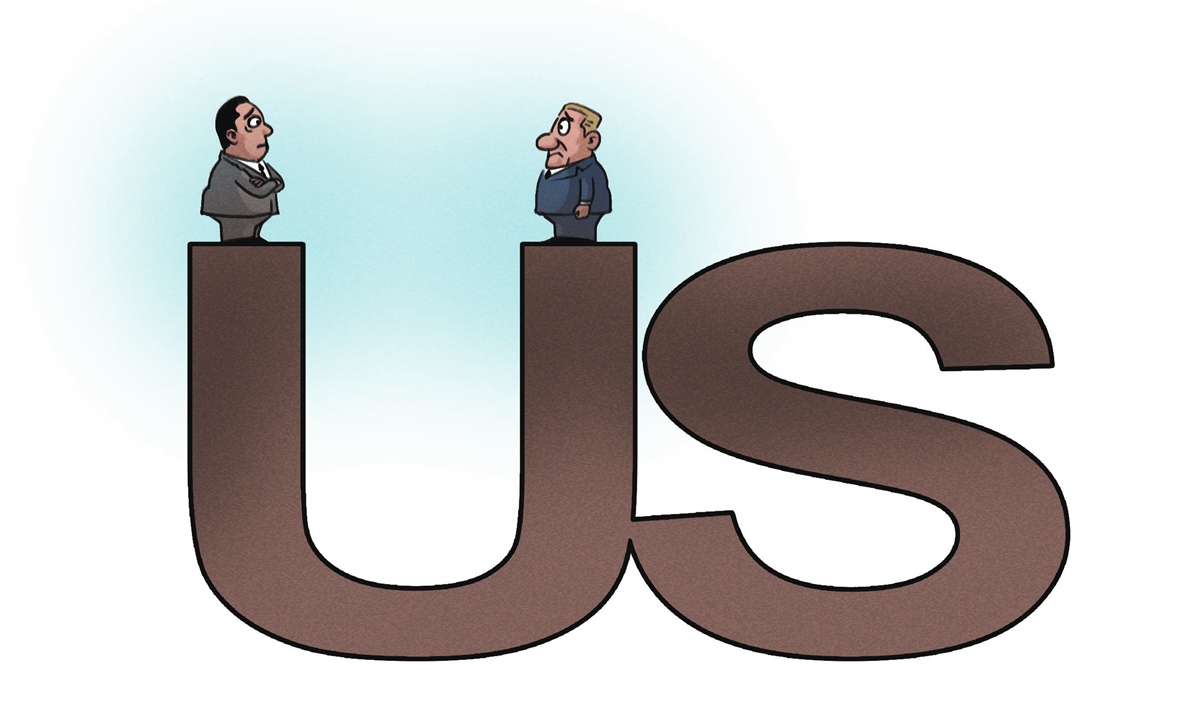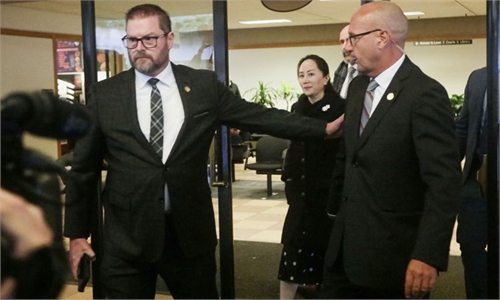
Illustration: Liu Rui/GT
Tuesday was the 50th anniversary of the establishment of diplomatic relations between China and Canada. Over the past year, due to contradictions and differences over the Meng Wanzhou case and Huawei's 5G development, China-Canada relations have fallen into a stalemate. This makes this originally worth-celebrating day seem a little cold. However, because of this frosty atmosphere, it is extremely worthwhile to think about the crux of China-Canada ties and the future of this bilateral relationship.
On Saturday, Canadian Prime Minister Justin Trudeau spoke with US President Donald Trump, during which they talked about the two Canadians detained in China, Michael Kovrig and Michael Spavor. This is not the first time Trudeau has mentioned the issue to Trump. In a television interview in December last year, he proposed that if the matter of the two arrested Canadians could not be resolved, the US should not sign the first-stage China-US trade agreement with China.
Trudeau's moves showed that he was very clear that the main reason for the "decoupling" of China-Canada relations lies in the US. This is consistent with the fact that the US has always used Canada in its competition with China. Washington will not hesitate to put Ottawa in a dilemma.
Former White House national security advisor John Bolton said in an interview with Canadian CTV News that it was "true" that Trump viewed Canada as a political pawn in trade dealings with China.
Global Affairs Canada, which manages the Canadian government's diplomatic and consular relations, issued a statement on Saturday, noting that Canadian Ambassador to China Dominic Barton conducted a consular video visit with the two arrested Canadians on Friday and Saturday, respectively. This is a special arrangement made by China in the context of the COVID-19 pandemic.
Considering the relatively closed prison environment, and referring to previous cases of outbreak in prisons at home and abroad, for the humanitarian protection of this special place and the need of domestic epidemic prevention and control, China has not opened up to face-to-face visits. This special "online visit" arrangement is a humanitarian goodwill measure given to Canada by the Chinese government.
The US election has now entered the "October surprise" stage in full swing. In the context of the COVID-19 pandemic, the US 2020 general election is expected to affect the future directions of the global economy, politics, and security. As such, it has caught enormous attention. Since the border between Canada and the US closed because of COVID-19, Trump has been very dissatisfied with Canada. In August, he re-imposed a tariff of 10 percent on some aluminum products imported from Canada.
If Trump is reelected, the Canadian government may soon face pressures from the US to open its borders. Although Trudeau has repeatedly avoided irritating Trump and even remained silent on his racist acts, Trump will no doubt continue to "beggar-thy-neighbor" should he win the election. This is obviously based on his "America First" policy.
There have been numerous reports in US mainstream media outlets that China favors certain US presidential candidate. This is not factual, as China does not endorse political figures nor interfere in other countries' domestic affairs.
But for some reason, the US seems to be paying too much attention to the other side of the Pacific Ocean, and is ignoring the attitude of its neighbors next door.
The Canadian newspaper The Globe and Mail in August published an opinion article titled, "Welcome Biden and Harris, as Canada can't take four more years of Trump."
Be it US-Canada steel and aluminum trade, NAFTA renegotiations, or the Meng Wanzhou case, Canadians have fully realized that the current US administration is completely irresponsible - it demands and takes what it wants from Canada at will.
Canada is one of the main countries that most wants to get rid of the irrational and reckless policies of the US and has normal relations with its southern neighbor. This will allow them to completely resolve the innumerable troubles caused by the current US administration.
The author is a research fellow with the Center for Canadian Studies, Guangdong University of Foreign Studies. opinion@globaltimes.com.cn

